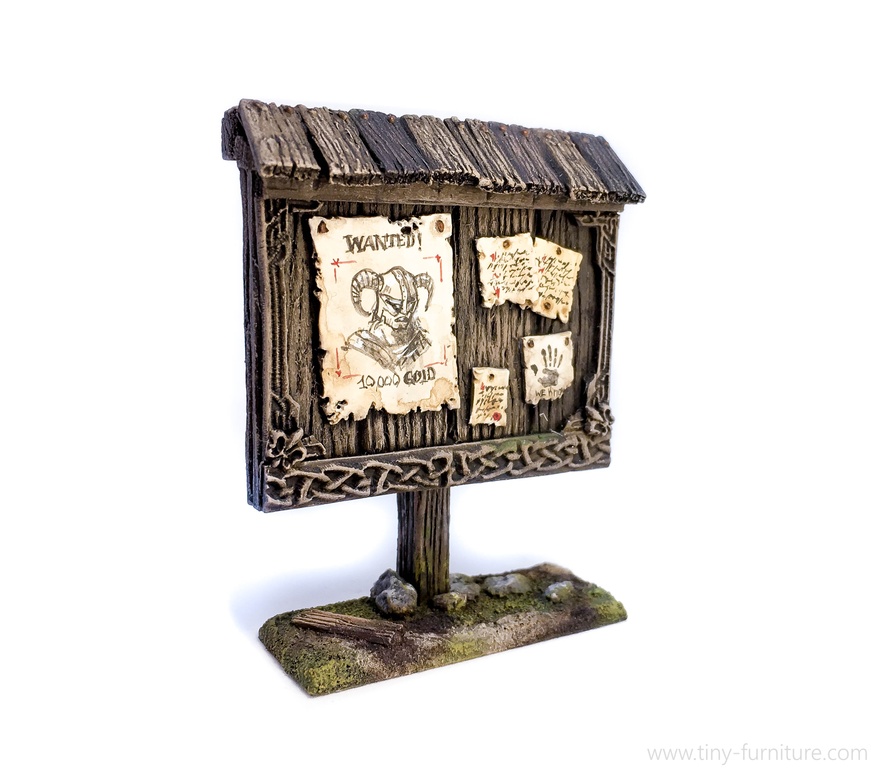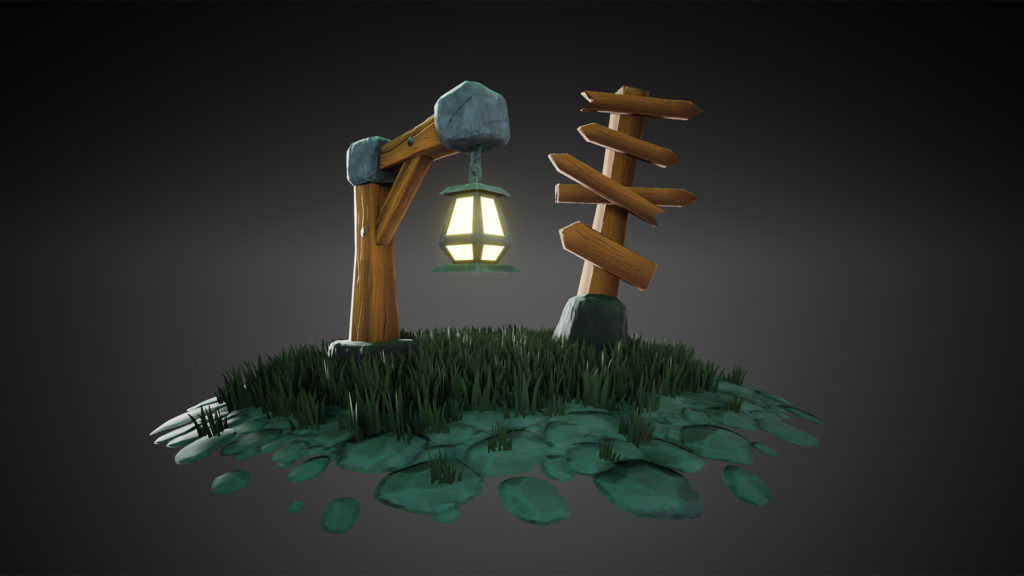
Quests are an elemental part of a good RPG campaign. They’ll provide your players with a goal. It will give them something that will lead them towards a certain direction. They often keep the group together, by representing a common objective for the characters. Our job as GMs is to design the quest and all that comes with it as entertaining as possible. Not only the goal, but more important the way and the story behind it, is what differentiates a mundane task from an entertaining challenge. Here are some aspects to keep in mind while designing the perfect quest for your group. These points are relevant for both, main and side quests.
1. Turn the journey into the reward
Player need to enjoy the quest, they shouldn’t do countless tedious tasks just to get the reward. Let the quest be the reward, give it reason. You should aim to make the way to their goal as enjoyable and memorable as possible. Sure, rewarding them with a nice new shiny item or tons of gold is a good thing to do, but it won’t spark joy if they had to endure the most boring way to get there. There are a lot of options to make more unique quests. A memorable fight for example. If they had to fight that large kraken on their way to treasure isle, they will feel excited to get there. Maybe they had to speak to a very interesting and unique NPC to get access to a boat? Or they had to get a favour from a powerful mobster who they now owe one in return? You could make characters from side quests reappear as part of a bigger picture in the main quest.
The scale of the quest is important too. It is important to create a feeling for your world through the quest design. If the quest is just a little side quest, you shouldn’t give it your all yet. Use the little quest to build the world you want to build, not to introduce important characters or save a whole nation from terror. One example: Your players come across an abandoned fisher hut near a lake. If your world is rather grim, you could tell the story of the fishermen who lost his wife to a disease. First he heard her singing from deep out on the lake, then he saw a version of her, and decided to try an reach her. He was lured by a siren to contemplate suicide. You could tell this story through careful placed hints in his hut, and climax the quest with a fight against the siren on the lake. Try to tell as much as possible about who the fisherman and his wife were. Describe their love for each other, the pain she felt, and the agony after she died. Paint a picture of the fisherman’s sorrow through your world. You can achieve this with letters to his lost wife, diary entries, NPCs in a near village, personal items and so on. The quest is just a tiny piece in the world you build. A magic bracelet could be the reward, but its journey will stick to the players, because it feels real and has a dramatic matter behind it.
2. Get them involved
A simple farmer asking your characters to do something for him won’t get the players that much involved. Tying a quest to the backstory of their character, or to something that happened to them during your campaign, can make things far more interesting and motivating for them. Study the backstories of your players characters, and maybe ask them for more details, so that you can integrate it better into your world. If one of them has an arch enemy, let him appear from time to time in the campaign. One of your players is a warlock? Let him do simple tasks for his patron from time to time. If your players just travel to their target, kill it, and retrieve the reward, they’ve gained nothing than a few coins. Let their characters grow. Let them achieve something bigger. Give them room to progress with their characters story. The adventure (or reward) that awaits need to be worth their time, needs to be of personal interest to them.
Another nice way to build a connection to your story is to let your players actions have consequences. Your players stole from a merchant earlier in the campaign? Maybe he had to close his business and the shop is abandoned the next time your players are in town. Or they destroyed a bridge during a fight and the bridge is repaired the next time they come back. Tiny details will make a huge difference here.
3. Provide them with choices
Giving your players choices will increase their involvement in a quest and force them to make decisions. You know the personalities of the characters. Challenge them. Make them think: Would my character do that? See this example: The party needs to rescue the princess of a duke. She was captured by raiders during an assault where hundreds of people died. When they get to the raiders, they see that the princess is now in love with the raiders leader and doesn’t want to be rescued. The raiders tell the party that they only attacked, because the duke’s fisher boats were fishing in their territories without permission. Maybe the players heard that the duke’s town has not enough fish in their waters to feed everyone, to create even more predicament. You know by now: There is no clear right or wrong here in this situation. Your players either have to choose a side or come to a solution that will make both sides happy, which is a rather challenging task here. This kind of quest design will make things far more interesting than having a clear path with no choices to be made.

4. Avoid simple fetch reward quests
While you sometimes have to rely on a get this to get that mechanic, try to keep it low. These type of quests can get very boring if you repeat them too often. Also, scheming every quest the same way will have the same effect. Mix things up. Maybe the next time players need to get something, let them come to that conclusion themselves. The task could be to brew a special sort of beer, and at some point they will figure out themselves that they need yeast for that. You could make it special yeast that can be bought, harvested or even created with some kind of spell. Giving players variety and encouraging their own thinking will make it feel less like a get this, get that theme. Use worldbuilding here. Maybe they trespassed some special flower before, that is now required for the brewing. Or there is a renowned elder brew master in a nearby town who could know a lot about the process. He could have a a follow-up quest for them too. The brewing of the beer itself can be some kind of minigame with skill checks and rewards for being prepared. For every part of a quest you need to ask yourself: Why is that in my world, and what can I do with it to give it more depth. By doing so you will see that you can use nearly everything as a hook for a quest. And it is okay if your players need to travel to a location to fetch things. After all, this a a mandatory part of the game. Your job is to not make it obvious. Make it feel like this is a part of the world your players are in. And if they will never every hear again of the brew master, it will be obvious that he was only created for the purpose of a simple quest.
5. Play with your players expectations
We all know it: There is this friendly character, who helps the players apparently out of sheer will and goodness. And while doing so, he has something shady about him. Everyone will expect this character to have a twist. And by knowing that, we can abuse it to create more interesting quests. Maybe this time he doesn’t have the twist? Try to leave hints in that direction. If your players distrust against that character grows, just let him be a nice guy for once. Just to throw it away the next quest, where the players were right with their expectation. Playing with these type of preconceptions can spice your campaign up. If your party consists of heroes, create a quest where they think they play the role of the good ones. Just to twist it at the end, and reveal that all the time their actions helped the bad ones. You could use this as a plot hook for another quest, where they take revenge to the person that fooled them.
Another way of playing with your players expectations is by showing them that no one is invincible inside your world. That folk hero, who helped them along their way? Let him die in a fight or get captured. Maybe your players need to rescue him. Or make one of your players get captured and be rescued (great way for when you know that one of your players can’t attend the next session).
Sometimes everything needs to go the way your players expect it to be. Maybe over a few sessions. And you as a GM can then destroy the house of cards built. Just make sure that it is within reason in your world.




Leave a Reply